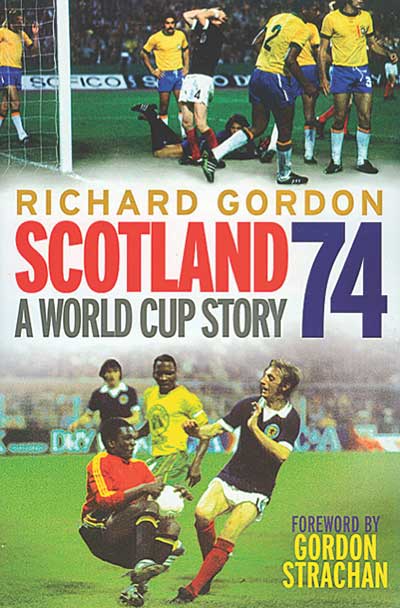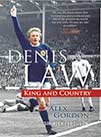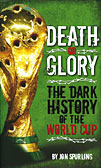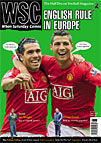 A World Cup story
A World Cup story
by Richard Gordon
Black and White, £11.99
Reviewed by Archie MacGregor
From WSC 332 October 2014
With yet another World Cup having passed Scotland by, the fondness and esteem with which the squad led by Willie Ormond to the finals in West Germany all of 40 years ago are regarded seems to grow ever warmer. Not without some justification either, as although they were unable to progress beyond a group featuring holders Brazil, Yugoslavia and Zaire, they emerged unbeaten, something not even West Germany as eventual winners could lay claim to. Nothing captured this particular glorious failure more enduringly than the image of Billy Bremner clutching his head in his hands as he came within a bobbled ricochet of earning the Scots what would have been a dream-like, yet arguably deserved, victory over the Brazilians.
As nostalgia trips go it makes for an engaging story and Richard Gordon, the respected voice of BBC Radio Scotland’s football coverage for many years, covers it in sure-footed and enjoyable fashion, relying heavily on a mix of interviews with surviving members of Ormond’s 22-man squad and contemporary press coverage. Perhaps the most remarkable aspect of the entire 1974 campaign from qualification to its agonising denouement in the final match against Yugoslavia is just how shambolic Scotland’s preparations had been on and off the field. While it was nothing compared the apocalyptic meltdown that was to come along four years later under Ally MacLeod in Argentina, this Scottish side and their entourage pretty much lived up to something of a Spinal Tap equivalent of the worst stereotypical behaviour of footballers on tour.
Most notorious was the Jimmy Johnstone “lost at sea” rowing boat incident at the squad’s Largs training base for the Home Internationals. But this was just one ill-starred tale among many of broken curfews, boozing, disputes over commercial deals and rumours of team selections being not solely the preserve of the manager. Ironically it was probably Johnstone who had more reason than anyone to emerge with a sense of grievance from the maelstrom, as having apparently been forgiven by Ormond for his boating misdemeanour and yet another breach of discipline prior to a warm-up game in Oslo, he did not feature in any of the three group matches despite still being near the peak of his powers.
While saluting Scotland’s valiant playing endeavours the theme of self-destruction just keeps on recurring. Depending on who you believe, the players either had a misplaced sense that victory alone over Zaire in the opening game was sufficient or they wanted to conserve their energy for the big one against Brazil. Either way it never looked like being enough, but there was to be a final unkind twist as their fate was sealed by an unfortunate fumble by Zairian goalkeeper Robert Kazadi which gifted the Brazilians a decisive third goal in the final round of group matches.
As the book reminds us there was however to be one lasting consolation for the players – uniquely among all of Scotland’s squads to have participated in a World Cup finals they actually got a welcoming party when they arrived back at Glasgow airport.

 King and country
King and country The Dark History Of The World Cup
The Dark History Of The World Cup 